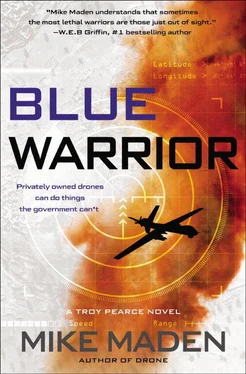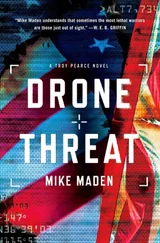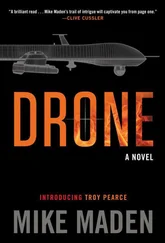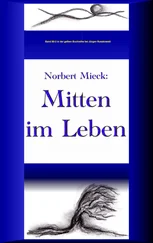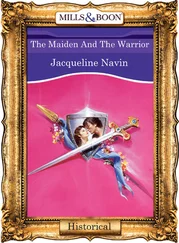“I’m getting too old for this shit,” Early complained through his shemagh and aviator glasses. “Bring any Dramamine with you?” Early was on the verge of puking from motion sickness.
“Beats working for a living, doesn’t it?” Pearce shouted back.
As they neared the mountains, the sand began to give way to small rocks, then hundreds of larger rounded stones as large as soccer balls as they approached the mountain range. They slowed. The steep hills in front of them were covered with piles of eroded granite blocks, some over five meters tall, like broken teeth thrusting out of a sandy jaw. Impassable by vehicles.
At the first steep incline Mossa signaled a stop and the convoy halted. Early and Pearce jumped out. It felt good to stretch their limbs after hours of riding folded up in the back, crowded in with two other fighters and Pearce’s gear. Pearce was the only man without a tagelmust . He pulled off his boonie hat and glasses and shook the sand out of his long hair and shaggy beard.
“Didn’t exactly come prepared, did you?” Early asked.
“It was supposed to be an extraction, not an insertion,” Pearce said.
“There’s a dirty joke in there somewhere, but my brain is too rattled to find it.”
Mossa had stepped out of the cab and was calling on a handheld walkie-talkie. The boy stood close by him. Pearce didn’t understand the lingo. It certainly wasn’t Arabic or Pashto.
“What’s he saying?” Pearce asked Early.
Early shrugged. “Beats me. I never picked up on the patois.”
“He’s calling ahead to his men, though they surely have watched us all the way here. He wants to be sure they don’t fire on us on the way up,” Cella said. She took a drink out of her canteen and held it out to Early.
“Thanks.” Early took a swallow as Pearce glanced up the rising chain of ragged mountains. The tallest peaks in the far distance rose some eight hundred meters.
“On the maps they call this the Adrar des Ifoghas—the mountains of the Ifogha clan,” Cella said. “The Imohar have fought many battles here. Algerians, Chadians, the French, and, lately, al-Qaeda Sahara. And yet they still remain.”
“How do they survive?” Pearce asked. “There’s nothing but rock and sand here.”
“The massif has many shallow valleys and wadis, and villages are scattered here and there.” She rolled away one of the larger stones with the toe of her boot. A yellow scorpion flared its stinging tail, then fled for the cover of another. “And a few surprises.”
Pearce nodded at the top of the hill in front of them. “The welcoming committee.”
A dozen Tuareg fighters stood on top of the big granite blocks, faces shrouded in indigo, rifles perched on their hips.
“Now we climb,” Mossa said.
“What about those?” Early asked, pointing at the Toyotas.
“They have another purpose,” Mossa said. “Grab your boxes, Mr. Pearce.”
Pearce pulled the two big Pelican cases out and shouldered his rifle. Early slung his SCAR over his good shoulder.
Mossa barked orders and the trucks sped away back toward Anou, each with a driver and gunner. The rest of his men and everybody else remained, including the four women and the boy.
“Follow my path exactly,” Mossa called over his shoulder. Mossa led the way up, snaking his way through the field of stones.
They climbed the mountain in silence, never following a straight line. Sand and rocks crunched beneath Pearce’s boots. Some of Mossa’s men wore sandals. The women and the boy did, too. Pearce assumed the mountain must be mined. He kept looking for trip wires or other triggers but never spotted any, so they must have all been buried. His practiced eye couldn’t spot any of those, either. Every now and then he saw a spent shell casing, the brass sometimes gleaming, sometimes tarnished. Depending on how long ago they’d been fired, he assumed. He counted five different calibers he recognized, and a couple more he wasn’t sure of.
The sun was kneeling down toward the far horizon behind them, but the heat was still miserable, though perceptibly less miserable than before. Pearce felt like the slacker in the group, struggling to keep up the pace on the rising grade. His thighs burned and his clothes were drenched. He realized how badly he’d let himself go. It had been six months since he’d done any serious running or any other kind of regular workout. The Tuaregs moved easily through the stony field and the heat. Even Early seemed immune to it. Halfway up they picked their way through a steep trench, whether natural or man-made Pearce wasn’t sure. The entire approach up the mountain was a natural barrier to all kinds of vehicles, wheeled or tracked. A great defensive position. No wonder the Tuaregs had been able to stand their ground here.
A few minutes later they were close to the summit of granite boulders. Mossa’s fighters dropped down from the rocks and came down to greet them. Pearce couldn’t understand a word of what they said, but the laughter, backslapping, and hand gestures were universal. Comrades greeting comrades after a harrowing, successful mission, recounting the action, moment by moment. Pearce knew when they reached the part about the Switchblade UAV and grenade launcher, because the entire group turned nearly in unison toward him in stunned silence.
“Mr. Pearce, come meet my commanders,” Mossa said, gesturing with his hand.
Pearce ambled over to the knot of indigo turbans and combat fatigues. Pearce felt strong hands clapping his back now, too, as he pressed in closer. Strange that the men still didn’t uncover their faces, he thought.
Mossa introduced him to the local commanders, each the head of his own small clan, and a fighting leader in his own right. Fierce, sharp eyes shined beneath the headdresses as Mossa named each man and listed his particular prowess in battle or recent victory. Many had fought for Gaddafi in the Libyan army. The old dictator had recruited hundreds of Tuareg fighters over the years and were considered some of the best soldiers under his command. When the regime fell, most Tuaregs fled back to their native homelands with as many weapons as they could carry. Too closely identified with the murderous Gaddafi regime and hated by ethnic Libyans, the Tuaregs knew the wrath of the foreign rebels leading the Libyan revolution—many of whom were radical Islamic jihadists—would soon turn on them as well.
Pearce nodded his head slightly to each in deference, and nodded further as he acknowledged each man’s honorific.
“And what of you, Mr. Pearce? I know nothing of you, except that you are friends with Mr. Early and my daughter-in-law. But first, explain to my men the nature of the weapon you unleashed on the dogs in Anou.”
Pearce hesitated. Since he was a kid growing up in the wilds of Wyoming he’d been a loner. The only son of a drunken, angry father, he took solace fishing and hunting in the mountains by himself, or lost himself in books by the fire at night. Even when he served with the CIA he’d mostly been alone behind enemy lines or in very small groups of fighters. Both his nature and his training drove him to stay in the background, unseen, unnoticed—until he struck. He hated being the center of attention of anything, whether it was a toast at a wedding or a sales pitch to a group of potential clients. He was uncomfortable even now, though it only involved explaining to a curious group of Tuareg warriors the technical aspects of a new weapons system. But Pearce knew the cultures of the East. He dared not embarrass or shame Mossa by refusing his invitation to share his exploits.
So Pearce relented, explaining the basics of the modified M-25 system. But he didn’t break open the Pelican case and pull out the gear to show them.
Читать дальше
